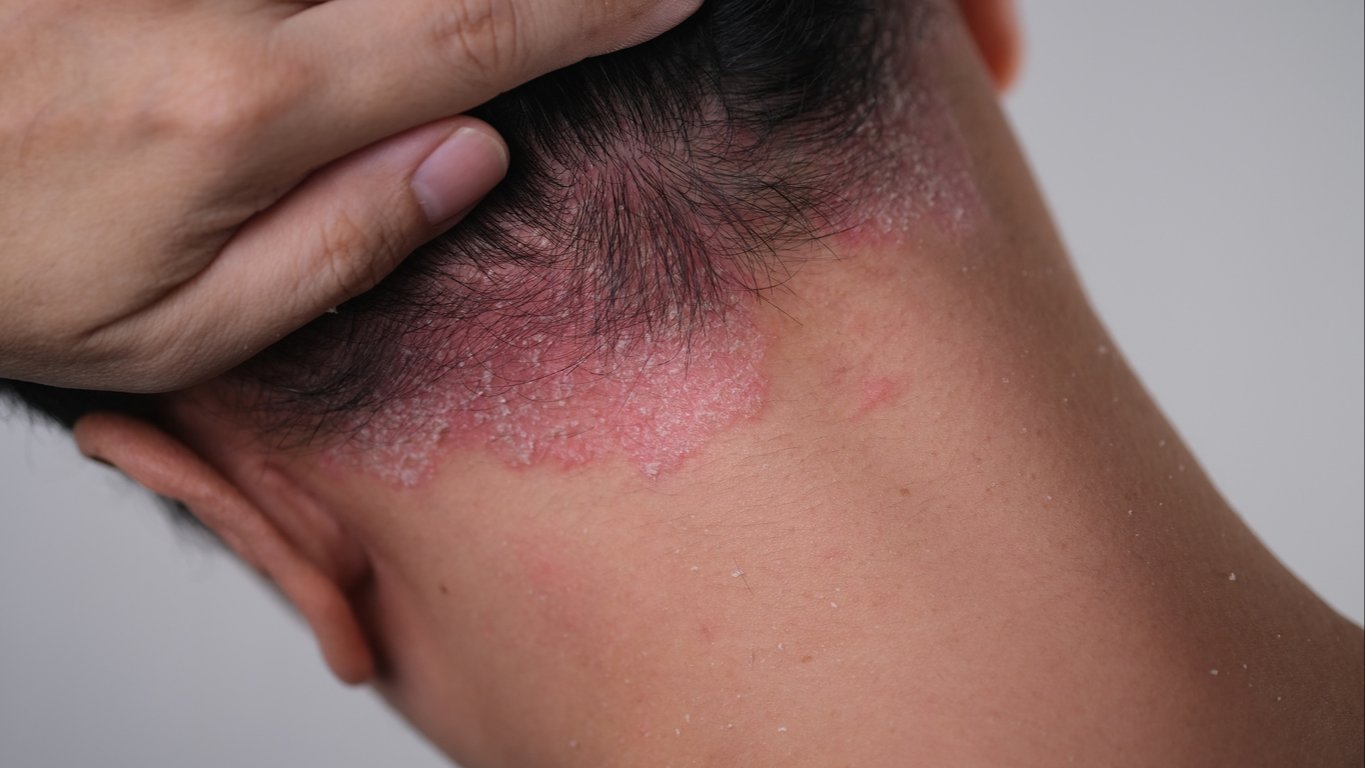Scalp psoriasis is a common skin disorder that affects many people worldwide. It manifests as red, itchy, and scaly patches on the scalp, and can sometimes extend beyond the hairline to the forehead, back of the neck, or behind the ears. Understanding the common causes, symptoms, first signs, and treatment options can help manage and potentially alleviate the condition.

Causes of Scalp Psoriasis
The exact cause of scalp psoriasis is not fully understood, but it is known to involve an immune system malfunction. Normally, skin cells grow and shed in a month-long cycle. In people with psoriasis, this cycle is significantly accelerated, and skin cells can grow and build up on the surface in just a few days. This rapid turnover leads to the thick, scaly patches characteristic of psoriasis.
Genetics play a crucial role in the development of the condition. If one or both parents have psoriasis, their children are more likely to develop the disease. Environmental factors can also trigger scalp psoriasis. These triggers vary from person to person but commonly include:
- Stress: Significant stress can trigger a new case of psoriasis or worsen existing symptoms.
- Skin injury: Physical trauma to the skin, known as the Koebner phenomenon, can provoke new psoriatic lesions.
- Infection: Certain infections, especially streptococcal throat infections, can lead to guttate psoriasis, which may involve the scalp.
- Medication: Some medications, such as lithium, beta-blockers, and antimalarial drugs, can exacerbate psoriasis symptoms.
Symptoms of Scalp Psoriasis
Symptoms of scalp psoriasis vary in severity from mild, small, scaly patches to thick, crusted sores that can be extremely itchy and uncomfortable. Common symptoms include:
- Red patches of skin covered with thick, silvery-white scales.
- Dry scalp that may crack and bleed.
- Itching, soreness, or a burning sensation.
- Temporary hair thinning due to scratching or removal of the scales, although scalp psoriasis does not cause permanent hair loss.
- The severity of the condition can fluctuate with periods of improvement followed by times when the psoriasis worsens.
First Signs of Scalp Psoriasis
The first signs of scalp psoriasis can be subtle. It often starts with slight redness or scaling that might be mistaken for dandruff. However, unlike dandruff, scalp psoriasis scales are silvery-white and the scalp may feel tighter or more inflamed. Early detection and treatment are crucial for managing symptoms and preventing the spread of the condition.
Treatment Options for Scalp Psoriasis
Treatment for scalp psoriasis aims to reduce inflammation, slow the growth of skin cells, and clear the skin of scales and plaques. Treatment options include:
Topical Treatments: These are the first line of defense in treating scalp psoriasis and include:
- Medicated shampoos and solutions containing coal tar or salicylic acid, which help reduce scaling.
- Topical steroids that can reduce inflammation and slow cell turnover.
- Calcipotriene or other vitamin D analog creams, which can also slow skin cell growth.
Phototherapy: This involves exposing the skin to ultraviolet light under medical supervision. It’s effective for more severe cases where topical treatments are insufficient.
Systemic Treatments: For severe or resistant cases of scalp psoriasis, oral or injected medications that work throughout the entire body may be necessary. These include:
- Methotrexate, which reduces inflammation and suppresses the immune response.
- Cyclosporine, another immune-suppressing medication.
- Biologics, which target specific parts of the immune system that drive inflammation in psoriasis.
Lifestyle Modifications: Managing stress, maintaining a healthy diet, and avoiding specific triggers can help manage symptoms. Regular moisturizing can also prevent the scalp from becoming too dry and reduce itching and scaling.
Scalp psoriasis is a complex condition influenced by genetic and environmental factors. Recognizing the first signs and understanding the comprehensive range of treatment options can significantly enhance the quality of life for those affected. It's important for individuals to consult with healthcare providers to tailor a treatment plan that addresses their specific symptoms and lifestyle needs. Managing scalp psoriasis often requires a multi-faceted approach, but with effective treatment, many people see significant improvement in their symptoms.



